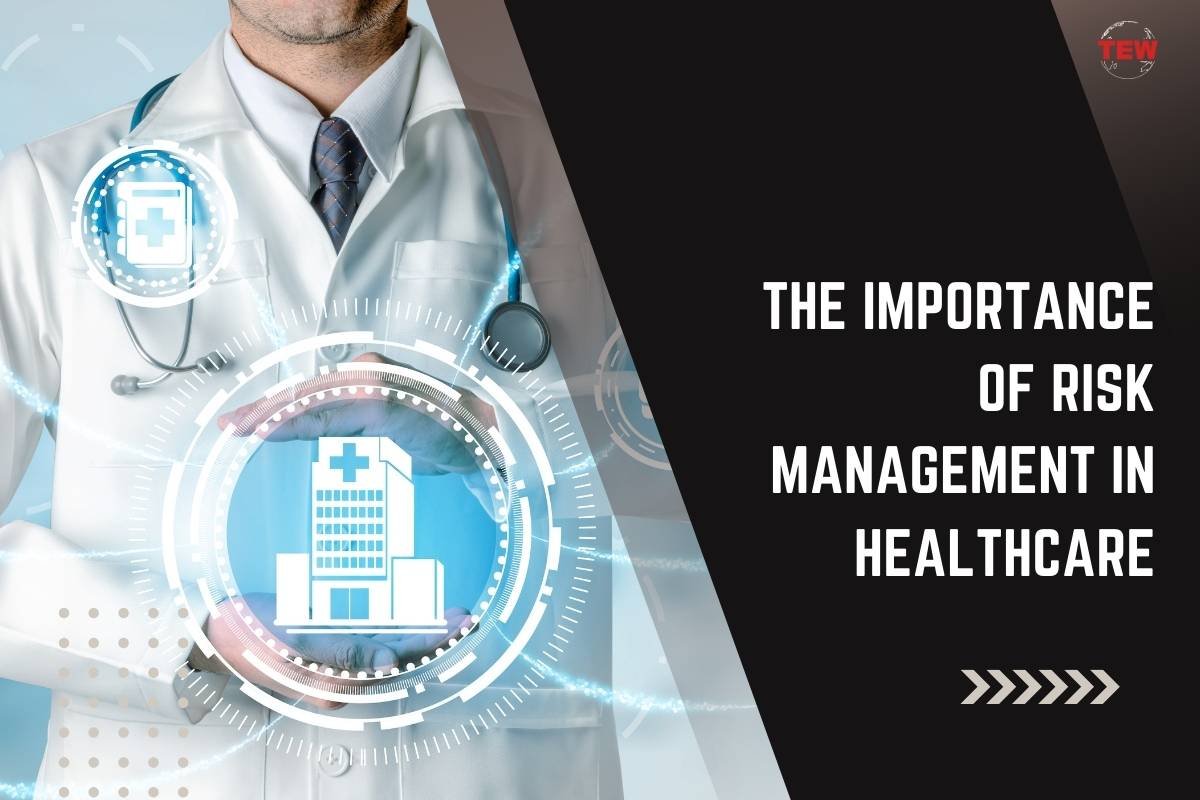In a field where the stakes are literally life and death, the importance of robust risk management cannot be overstated.
Understanding Risk Management in Healthcare
What Does Risk Management Entail?
Before we delve into the importance of risk management, it’s a good idea to read this piece Concordia University Online – What Is Risk Management In Healthcare?. It helps to paint the full picture so you have a great starting point.
Why Prioritize Risk Management?
Patient Safety Comes First
The core of healthcare is the well-being of patients. Effective risk management not only prevents potential errors and accidents but also ensures that the highest standards of patient care are maintained consistently. This proactive approach to preventing problems before they occur is crucial in fostering a safe environment for recovery and treatment.
Supporting Our Healthcare Workers

A safe workplace is a productive workplace, especially in healthcare settings. By actively managing risks, healthcare facilities create a safer, more supportive environment for staff. This leads to better job satisfaction, lower turnover rates, and a more dedicated workforce.
The Financial Health of Healthcare Organizations
Financial risks in healthcare—from insurance reimbursements to compliance fines—can destabilize the foundation of any medical institution. Efficient risk management in healthcare strategies protects economic resources, ensuring that funds are used effectively to improve patient services rather than settle legal claims or cover losses.
Breaking Down the Risks
1. Clinical Risks
- Medical malpractice – The dire consequences of diagnostic errors, surgical mistakes, and improper patient treatment.
- Pharmaceutical errors – Incorrect medication prescriptions or dosing mishaps.
- Infection outbreaks – The spread of infections within healthcare facilities, potentially leading to severe health crises.
2. Operational Risks
- Supply chain failures – Disruptions that could lead to shortages of critical medical supplies.
- Data breaches – Unauthorized access to patient information that could compromise patient confidentiality and lead to legal issues.
3. Strategic and Financial Risks
- Regulatory changes – Updates in healthcare laws that require quick adaptation to maintain compliance.
- Insurance complexities – Issues in dealing with claims, coverage disputes, and reimbursement processes.
Implementing Effective Risk Management

Step-by-Step Guide
- Identify Potential Risks – Continuously scan the environment to identify new risks arising from technological advances, regulatory changes, or internal processes.
- Assess and Prioritize Risks – Evaluate the likelihood and potential impact of identified risks. Focus on those that could cause the most significant disruption.
- Develop Mitigation Strategies – Tailor strategies specific to each risk, whether it’s enhancing security protocols, improving patient handling procedures, or updating compliance policies.
- Implement and Monitor – Put the strategies into practice and monitor their effectiveness. Adjust as necessary to ensure continuous improvement.
Real-Life Benefits of Effective Risk Management
Impactful Stories Without Specific Names
Let’s consider some hypothetical yet realistic scenarios that highlight the benefits of effective risk management in healthcare. These examples demonstrate the profound impact that proper risk management in healthcare can have on both the operations of healthcare facilities and the well-being of patients.
1. Enhanced Patient Outcomes through Error Prevention
- Scenario – A hospital implements a new electronic health record (EHR) system with advanced alert features that identify potential drug interactions. This system effectively reduces the rate of pharmaceutical errors by alerting healthcare providers about potential dangers before medication is administered.
- Impact – Improved patient safety, reduced incidence of adverse drug reactions, and enhanced trust in the healthcare system.
2. Operational Efficiency in Crisis Situations
- Scenario – During a global pandemic, a healthcare facility with robust risk management in healthcare framework is able to quickly adapt its operations, implementing telehealth services to reduce patient crowding and limit virus transmission.
- Impact – Continuous care provision during a crisis, reduced risk of infection spread within the facility, and maintenance of routine healthcare services despite external pressures.
3. Financial Savings from Risk Mitigation

- Scenario – A clinic conducts regular training for its staff on the latest compliance regulations and proper patient data handling techniques, significantly reducing the risk of data breaches and non-compliance penalties.
- Impact – Financial resources are preserved, not spent on fines or legal fees, allowing the clinic to invest further in patient care technologies and staff development.
4. Staff Satisfaction and Retention
- Scenario – A hospital focuses on workplace safety by regularly assessing physical and mental health risks to its staff, implementing measures such as ergonomic workstations and mental health support programs.
- Impact – Higher staff morale and job satisfaction lead to lower turnover rates, ensuring that the hospital retains experienced personnel who are familiar with its systems and patients.
Frequently Asked Questions About Healthcare Risk Management
Q1: How does risk management in healthcare differ from other industries?
A1: The direct impact on human lives sets healthcare risk management apart, demanding not only financial and operational consideration but also a deep focus on ethical medical treatment and patient confidentiality.
Q2: What role does technology play in healthcare risk management?
A2: Technology is a double-edged sword in healthcare. While it offers advanced tools for patient management and data security, it also introduces risks like cyber threats and technical failures. Balancing these aspects is key to effective risk management.
Q3: Can small healthcare facilities implement robust risk management practices?
A3: Absolutely! Risk management is scalable. Smaller institutions can adopt streamlined processes tailored to their specific needs and resources.
Conclusion
By understanding and managing risks, healthcare facilities can not only protect themselves but also improve their overall service delivery, ensuring a resilient future for both patients and providers.




